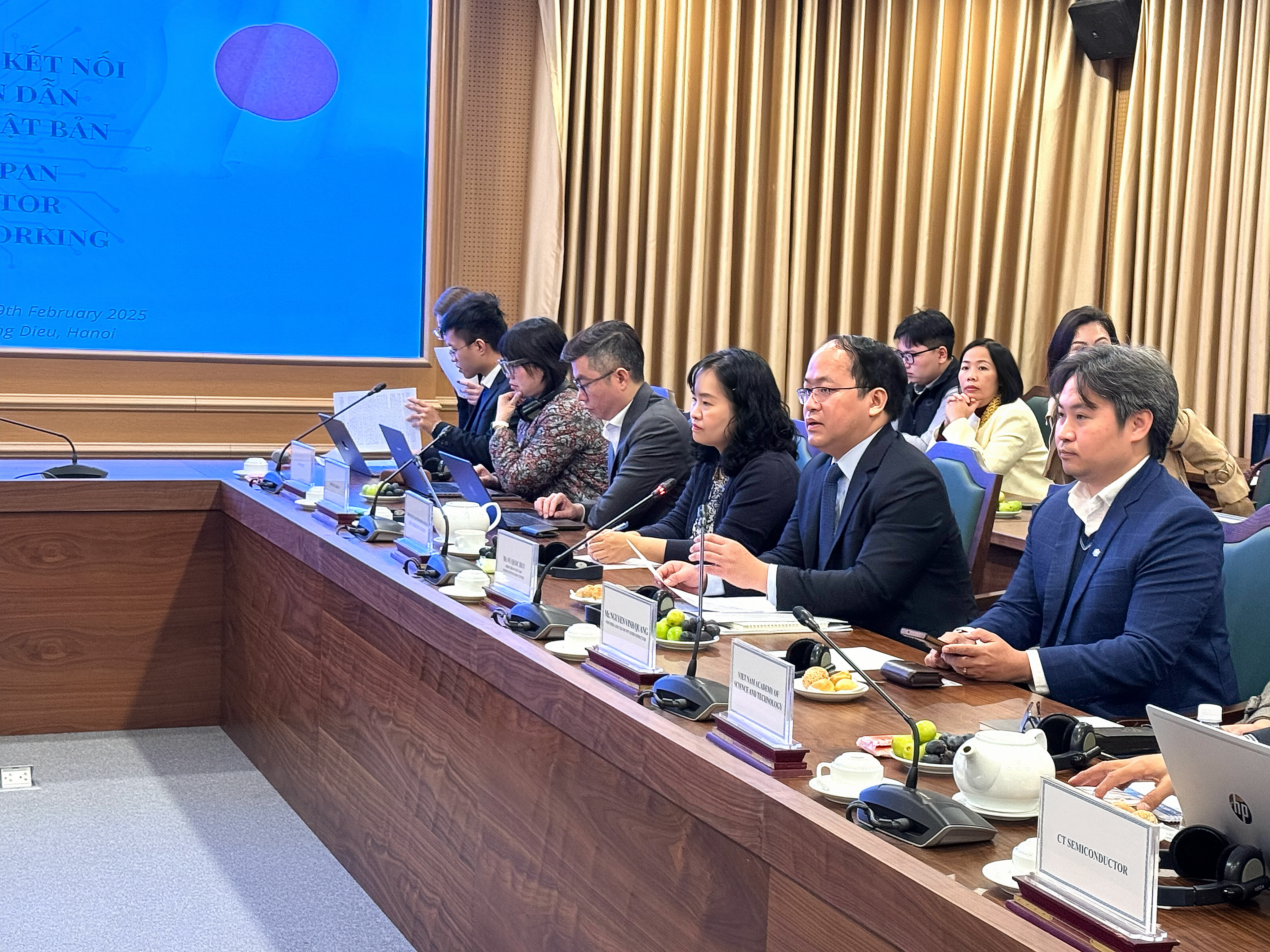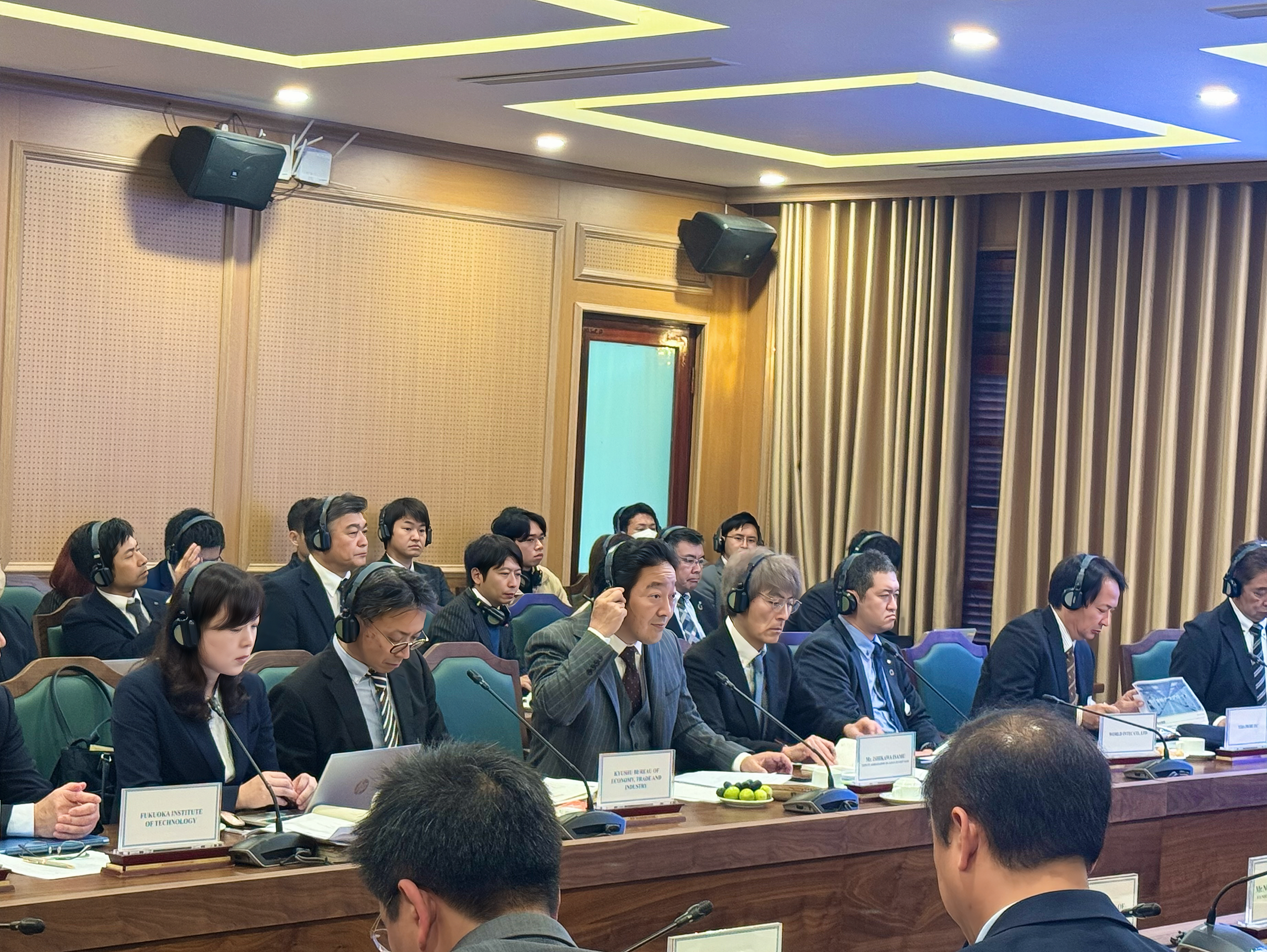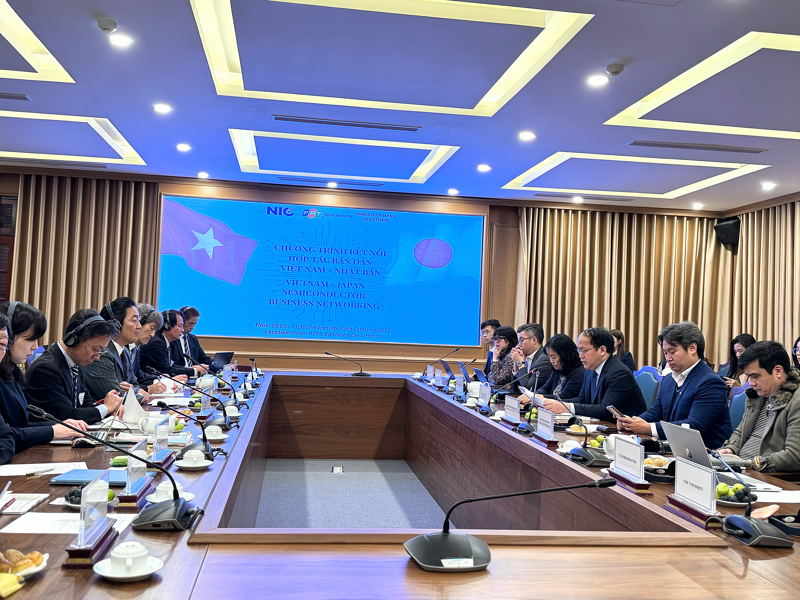At the “Vietnam - Japan Semiconductor Business Networking," held in Hanoi on the February 19, many discussions were focused on collaboration prospects, spanning technology transfer, supply chain development, and high-quality workforce training, with the ultimate goal of strengthening Vietnam’s position in the global semiconductor value chain.
LEVERAGING STRENGTHS TO ADVANCE THE SEMICONDUCTOR INDUSTRY OF BOTH SIDES
Addresing at the event, Mr. Vu Quoc Huy, Director of the National Innovation Center (NIC), emphasized that Vietnam’s long-term development strategy is built on three key pillars: digital transformation, green transition, and innovation. Notably, the semiconductor industry plays a pivotal role in global economic growth, particularly in the era of digital transformation and artificial intelligence, he noted.
“Vietnam has all necessary conditions for collaboration with enterprises and investors worldwide in the semiconductor industry,” Mr. Huy affirmed.

Meanwhile, Japan has established itself as a global leader in the semiconductor industry, hosting numerous top-tier companies. It has also made significant advancements in semiconductor manufacturing, particularly in the Kyushu region, often referred to as Japan's “Silicon Island", according to him.
“Strengthening cooperation between the two nations will enable Vietnam to integrate more deeply into the global semiconductor value chain, while allowing Kyushu to further solidify its position as Japan’s semiconductor and electronics hub. This, in turn, will contribute to Japan’s broader ambitions in the global semiconductor industry,” Mr. Huy added.
Morover, Deputy Ambassador of Japan to Vietnam Ishikawa Isamu, for his part, highlighted that Japan remains among the world’s leaders, in terms of semiconductor industry. Japanese enterprises are not only strong in integrated circuit manufacturing but also hold a competitive edge in semiconductor equipment production, the Japanese diplomat said.
By enhancing collaboration with Kyushu, Vietnam stands to benefit from cutting-edge technology, industry expertise, and a well-established network of top-tier enterprises, all of which will accelerate the development of its domestic semiconductor sector, according to the deputy ambassador.
“I fully agree with the saying, ‘If you want to go fast, go alone; if you want to go far, go together.’ I hope that by strengthening cooperation between businesses from both countries, we will further enhance the Vietnam-Japan relationship in the future,” Deputy Ambassador Ishikawa Isamu noted.
BUILDING A HIGH-QUALITY SEMICONDUCTOR WORKFORCE
Deputy Ambassador Ishikawa noted that during the mid-term review meeting of the Vietnam-Japan Joint Initiative in the New Era, held in December last year, semiconductor workforce development was identified as one of the key priorities for the bilateral cooperation.
Besides, the Vietnamese government has set an ambitious target of training 50,000 semiconductor workers by 2030 to meet the surging demand of this strategic industry, he remarked.

“In this context, promoting cooperation in semiconductor workforce training between Vietnam and Japan will bring significant benefits to both countries, enhancing competitiveness and ensuring the sustainable development of this strategic industry,” the Deputy Ambassador affirmed.
In order realize the vision of Vietnam and Japan as “natural allies” in the semiconductor industry, Mr. Nguyen Vinh Quang, Founder and CEO of FPT Semiconductor, proposed the establishment of two strategic alliances between the two countres.
The first is the Semiconductor Education Alliance, focusing on training a highly skilled workforce for both countries; and the second is the Semiconductor Manufacturing Supply Chain Alliance, ensuring supply chain continuity, advancing technology, and progressively elevating Vietnam’s role in the global semiconductor ecosystem.
Additionally, a representative from the Kyushu Bureau of Economy, Trade, and Industry (Japan) highlighted the region’s growing need for high-quality semiconductor talent. “ Therefore, we hope to establish strong partnerships with Vietnamese enterprises and training institutions to contribute to the growth of the semiconductor sector in both Kyushu and Japan as a whole in the coming time,” the representative shared.









 Google translate
Google translate